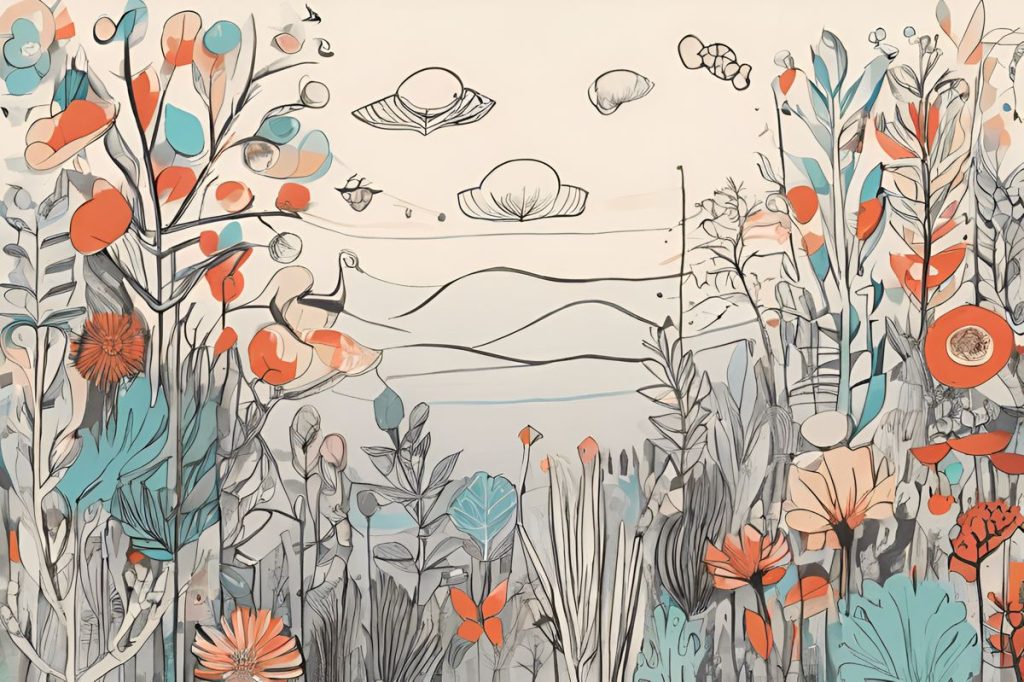Cyprus’ rich biodiversity and cultural heritage face neglect and unsustainable practices, threatening its unique ecosystems and historical influences. Efforts focus on responsible tourism and collaboration to preserve the island’s natural wonders and traditions for future generations.
What is at stake for Cyprus’ cultural and natural heritage?
Cyprus’ cultural and natural heritage, rich in biodiversity and historical influences, is at a critical juncture due to neglect and unsustainable practices. Efforts for sustainability focus on responsible tourism and collaboration, to preserve the unique culture, ecosystems, and geological wonders for future generations.
The Richness of Cypriot Biodiversity
By Martin Clark
Cyprus, a jewel nestled at the confluence of the European, Asian, and African tectonic plates, is home to a natural tapestry as diverse as its history. Drawing from three continents, the island’s flora and fauna are a testament to its geographic location. Once a haven for species such as pygmy hippopotami and elephants, modern Cyprus continues to showcase an array of plants and birds unique to its landscapes.
The island’s geological wonders are born of volcanic fervor—lava spewed from the depths, creating an intricate array of rock formations, and the copper-rich veins that traverse its subterranean expanses. This geological bounty has played a pivotal role since the Copper Age, some 5,500 years in the past, fueling advancements and attracting civilizations like the Greeks and Romans, who found a palette of pigments within the Cypriot soil.
The Confluence of Culture and Nature
Cyprus’ cultural tapestry is as richly woven as its natural one. The island’s culture is a mélange of influences from the many who have settled or conquered these lands over millennia. This vibrant culture is reflected in the traditional skills, village folklore, and festivals that have been passed down through generations. However, the preservation of both culture and nature now faces significant challenges.
Society has played a role in the neglect of Cyprus’ cultural and nature management, leading to the loss of traditional practices and the endangerment of unique ecosystems. As traditional agricultural methods wane, the terraces once sculpted by donkeys and human hands now lie abandoned, a lost cultural landscape that once supported a remarkable biodiversity.
Tourism and Sustainability: The Path Forward
The future sustainability of Cyprus’ heritage hinges on a modern, responsible approach to tourism. Rather than succumbing to the lure of mass-market appeal, there is potential in attracting a more discerning visitor. This visitor values the island’s unique offerings—its culture, nature, and history—and is willing to support and even participate in preservation efforts.
Target groups such as digital nomads represent an opportunity for Cyprus. With their environmental awareness and desire for cultural immersion, these individuals can contribute positively to the local economy while also engaging in activities that protect and enhance the cultural and natural heritage of the island.
Collaborative Efforts for a Sustainable Cyprus
In the picturesque Larnaca District’s mountainous villages, efforts are underway to harness the power of collaboration and European funding to safeguard the Cypriot legacy. Organizations like ‘Kato Drys Community Council’ and ‘Lefkara Cultural Association’ play pivotal roles in drawing in resources, offering training, and creating co-living and coworking spaces for digital nomads.
By joining forces with international partners in the ‘INHERIT’ project, these local initiatives strive to develop sustainable experiences for both tourists and locals. The aim is to foster a community of volunteers, including digital nomads, who can make a tangible difference in conserving Cyprus’ precious natural and cultural resources.
Amid the serious work of preservation, there is room for humor and connection, as evidenced by the lively exchanges in traditional coffee shops. Such conversations illustrate the curiosity and resilience of the Cypriot people, a reminder that the spirit of Cyprus is as enduring as the land itself.
Written by Martin Clark, a professional forester, land manager, and director of Grampus Heritage & Training, this article offers insight into the powerful synergy between culture, nature, and sustainable development in Cyprus.
What is at stake for Cyprus’ cultural and natural heritage?
Cyprus’ cultural and natural heritage, rich in biodiversity and historical influences, is at a critical juncture due to neglect and unsustainable practices. Efforts for sustainability focus on responsible tourism and collaboration, to preserve the unique culture, ecosystems, and geological wonders for future generations.
What is the significance of Cyprus’ biodiversity?
Cyprus’ biodiversity is a testament to its geographic location, drawing from three continents to showcase a diverse array of plants and birds unique to its landscapes. The island’s geological wonders, formed by volcanic activity, have played a pivotal role in attracting civilizations and fueling advancements since ancient times.
How is tourism connected to the sustainability of Cyprus’ heritage?
Tourism plays a crucial role in the sustainability of Cyprus’ heritage. By attracting a more discerning visitor who values culture, nature, and history, the island can preserve its unique offerings. Efforts are being made to engage tourists in preservation efforts and target groups like digital nomads who can contribute positively to conservation.
What collaborative efforts are being made to safeguard Cyprus’ legacy?
Organizations like the ‘Kato Drys Community Council’ and the ‘Lefkara Cultural Association’ are working together to harness European funding and resources to preserve Cyprus’ natural and cultural heritage. Collaborative initiatives, such as the ‘INHERIT’ project, aim to develop sustainable experiences for tourists and locals, with a focus on conservation and community engagement.

